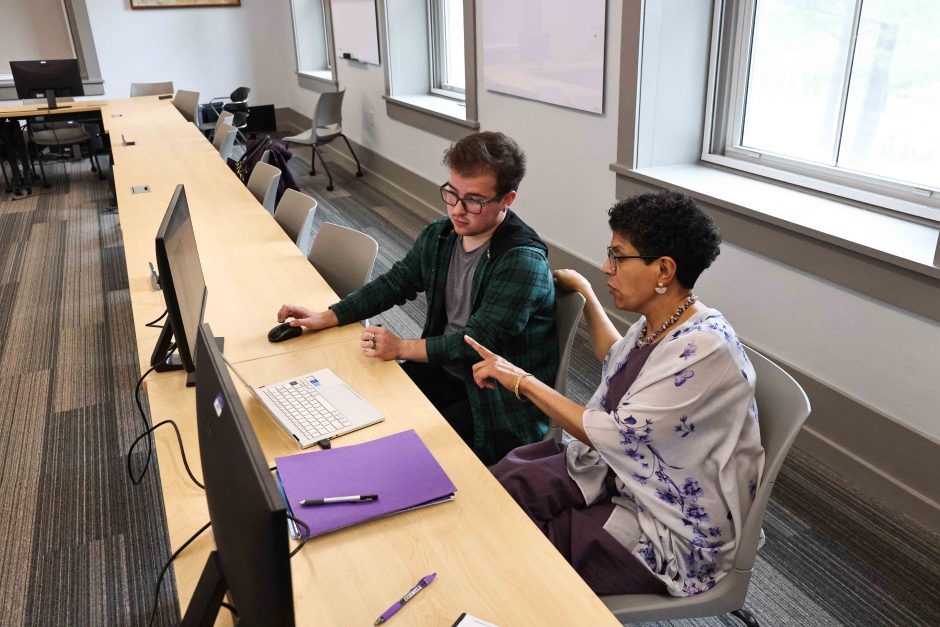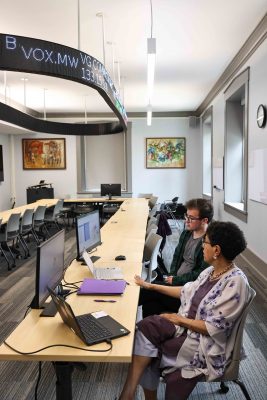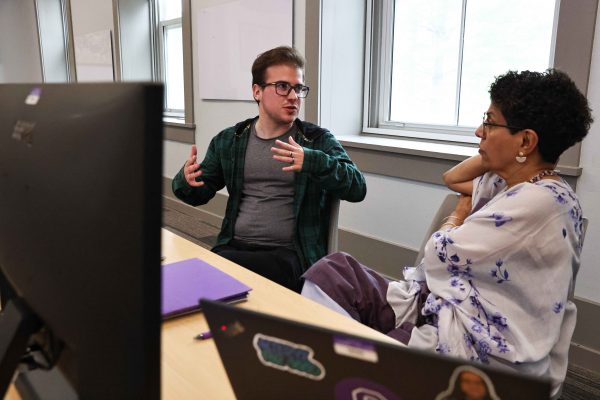Senior harnesses the power of social media analytics during CSRI

Senior Jake Vuolo delved into social media analytics to master software tools that unravel online trends, gaining insights that extend beyond surface-level data.
“Analytics is so important because it requires us to think about things outside of just what’s face value and how things connect to each other,” Vuolo said. “And that is a skill that I can use wherever I go in the future.”
Vuolo, a business analytics and statistics double major from Colorado, worked with Professor of Economics and Business Santhi Hejeebu during the Cornell Summer Research Institute (CSRI) from May 20–July 12. The duo used three different toolsets, which consisted of a variety of social media software applications, to examine online conversations. Their goal was to see which set of tools produced the best outcome for collecting and understanding their data so that those tools could be used in upcoming courses.
 “The data we’re talking about is everything,” Vuolo said. “It’s the mentions, it’s who’s mentioning what, and how many followers they have.”
“The data we’re talking about is everything,” Vuolo said. “It’s the mentions, it’s who’s mentioning what, and how many followers they have.”
Vuolo analyzed the software tools by focusing on a topic of his choice that he’s passionate about. After witnessing the bleaching of a coral reef in high school, climate change became very real to him. He wanted to take a look at the social media activity surrounding the outdoor wear industry and its commitment to eco-friendly clothing and sustainability.
“I picked that topic because there is this very interesting connection between companies promoting being outdoors and then selling consumers products that directly contribute to global emissions,” Vuolo said.
The team created a query on the software platforms and collected and analyzed 50,000 mentions.
“In business and society it’s important to know what the broader public discourse is beyond what’s in our individual media feeds,” Hejeebu said. “Because what’s in my feed is different than what’s in your feed. As an analyst, we can’t have that tunnel vision.”
The team aimed to figure out which tools would be best for the economics and business course, Social Analytics (ECB212). Hejeebu says if students in the course are to assess social discourse, she and Vuolo need to evaluate software tools in terms of ease of student learning and quality of results.
“What’s the nature of public conversation? What is society feeling collectively as we become more isolated and more anonymized in our interactions? Today, it’s impossible to catch the pulse of what people feel on any given topic without computational tools. In our project, we care about the topic of clothing brands’ promoting environmental values. We also care about the computational tools that facilitate deeper understanding on the topic.” Hejeebu said.
And the team didn’t just learn insights about their data and the software they were using. Vuolo also learned a lot about himself, saying that the most challenging part of CSRI was also the most rewarding. His work was done at a much different pace than his work during the school year.
“I think CSRI has been an incredible opportunity, and I have learned a lot about who I am as a person outside of the classroom,” Vuolo said. “I’ve learned a lot about my learning style and the things that I find important in a workspace for me.”
Plus, he has received industry certifications in the software programs he’s researching, which will look good on a resume. Hejeebu says it takes a lot of concentration to do the work Jake has done this summer.
“This is a great grit-building experience,” Hejeebu said. “It’s not like a standard project where we have clear deliverables coupled with hard deadlines. This process pivots on having a deep commitment to discovery and having the self-discipline to carry it through. What we’ve learned in CSRI isn’t available in published reports or white papers. It hasn’t been evaluated before, so we’re pretty excited about it.”



